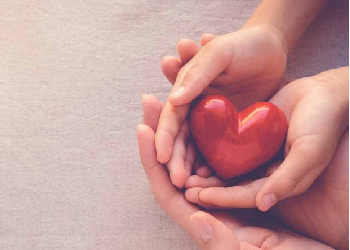The testimony of a psychologist
A look of love on wounded humanity
“… you bring the voice of the dead in battle, who gave life had a cross in return…” (F. De André)
When songs are bearers of universally shared themes, in every age and at every latitude, lend themselves to interpretations that let emotions that cross the human soul emerge consciously. Life and death are universally recognized experiences, often represented in a duel when in reality they are an integral part of each other. It is a difficult concept for us humans to grasp, both on a purely cognitive and more emotional and profound levels. The horizon of our human finiteness, from a purely psychological perspective, is what gives meaning to our existence. Life acquires value and even beauty to the extent that it is constantly related to death.
But logic drives human beings to an exhausting search for “meaning” on this earth: making sense of the days, making sense of interpersonal relationships, making sense of one’s goals. In this often laborious search, it is easy to forget about your mortal condition. In fact, we live as if we were immortal, as if there were a “forever” terrain, a mathematical certainty of having a tomorrow. A tomorrow in order to improve, a tomorrow to forget, a tomorrow to forgive and even a tomorrow to love. All this works for the psyche until everyday life is turned upside down by unexpected, dramatic and destabilizing events. A mourning, the loss of a job, an illness and an abandonment bring man back to a condition of fragility; the precarious balance that has been created falters, psychological defenses are lowered, one becomes vulnerable, suffers and experiences fear. In these moments we try to appeal to all available resources: family affections, friends, the spirit of resourcefulness, the will and for those who have faith, prayer.
However, sometimes, it is not enough. The wounds of the soul are deep and invisible, they dig furrows difficult to imagine. It is very often difficult to express in words the anguish, despair and fear, especially in a world where appearance dominates the scene: in a globalized world that requires beauty, youth, wealth and brazenness, being sick is a fault and even a shame. Feeling bad is the tangible sign of “not having made it”, of being weak, inferior, unsuitable and never enough. “It will be better tomorrow”, “I can make it”, “I keep it for myself”, “who do you think cares about it?”… and with this tangle in thoughts and hearts everyone fights his own personal battle as he can. The personal unconscious plays its role: you are unknowingly driven to make pain act and very often with mechanisms that make you feel you are in a hamster wheel; we run, we hurry but we lost direction, we lost the “sense” of that running, we do it because it is what others expect. Depression, panic and anxiety can take the place of serenity and professional help is often needed to get out of this tunnel.
Psychologists, psychotherapists and psychiatrists are mental health professionals who know the functioning of mental mechanisms, recognize their dysfunctional patterns, help people to recalibrate traumatic events and suffering in a new system of meaning in general. They are non-judgmental and welcoming figures who work in a time suspended between reality and the intra-psychic world. They help people find continuity in the interrupted path between needs, emotions and daily life. They help to reactivate healthy resources by providing tools to allow emotional and tangible life to start flowing again.
Humanity is fragile. “Whoever gave his life had the cross in return” is a completely human vision of thinking that death is the currency placed for repaying an act of generosity. Doctors, nurses who died to save lives in this time of mourning and pain reactivate the collective fear of the transience and finiteness of being. The many priests, the many elders who have given up their respirators to allow someone else to live have also given their lives, receiving the cross. But having the cross in return from God’s perspective, is the promise of eternal life. The mathematical certainty of non-finiteness. These heroic gestures allow even in this time of destruction to work out a collective pain, starting from personal experience. They give the world a new soul, they blow on the ashes of hope by reactivating the fire of life that does not want to go out.
Having a loving look at people is possible. Having the ability to soothe invisible wounds is a gift. Recognizing that this gift is an instrument received from God is humility. “Of the dead in battle you bring their voice” … let us have the voice of love echo and the collective wounds consciously be part of us. Let us not close the door to pain, it will find the same a way to enter and it will hurt more. Let us learn to offer suffering and let us learn to offer our gifts. Let us rediscover the feeling of gratitude and love unconditionally. Love is the saving force that changes the world. Let whoever has been loved love others without pretensions and let who has never been loved not close the door to possibility. Somewhere and at a specific moment, God’s love will be revealed through a gesture and through a look.
I thank the Lord, the Virgin Mary Mother of the Redemption for having made me aware of my particular gift. Every day through patients I am given the opportunity to grasp aspects of humanity wounded by pain and by making my knowledge available I help with the sight of a child the work of God who acts, if we have faith, unworthily also through each of us.
Psychiatrist Dr. Caterina Corea
Direttrice del Centro di Riabilitazione PsicosomaticaKlinik Teufen Group
Svizzera





